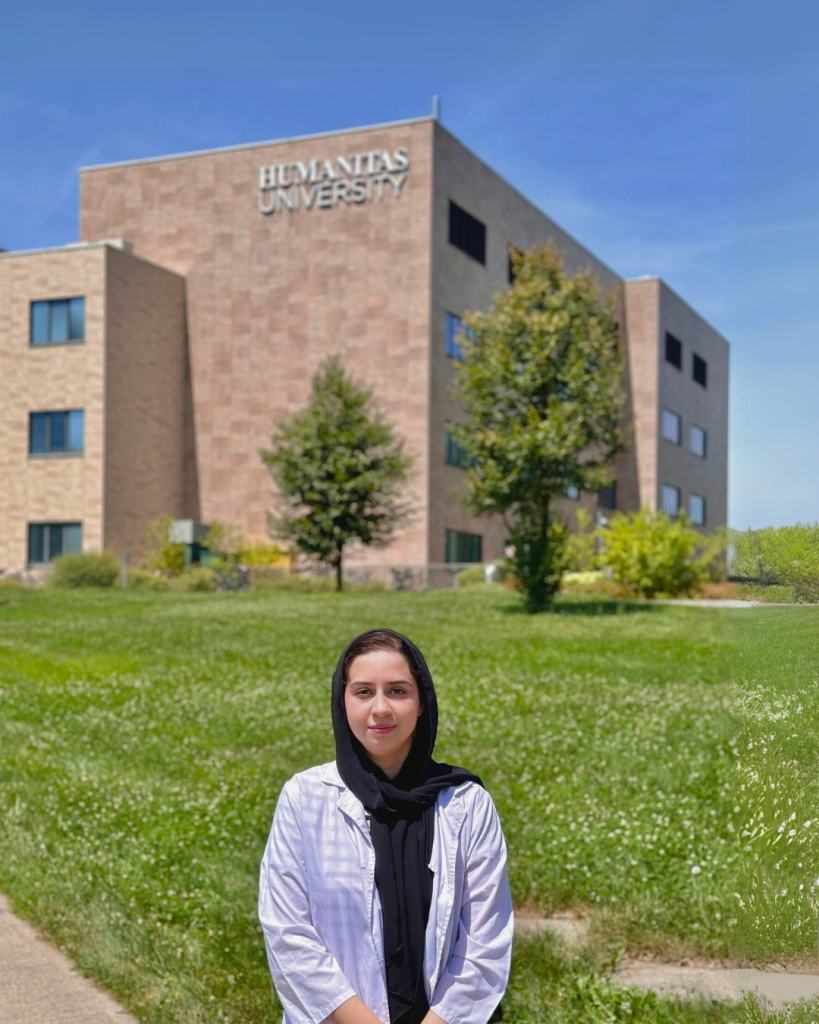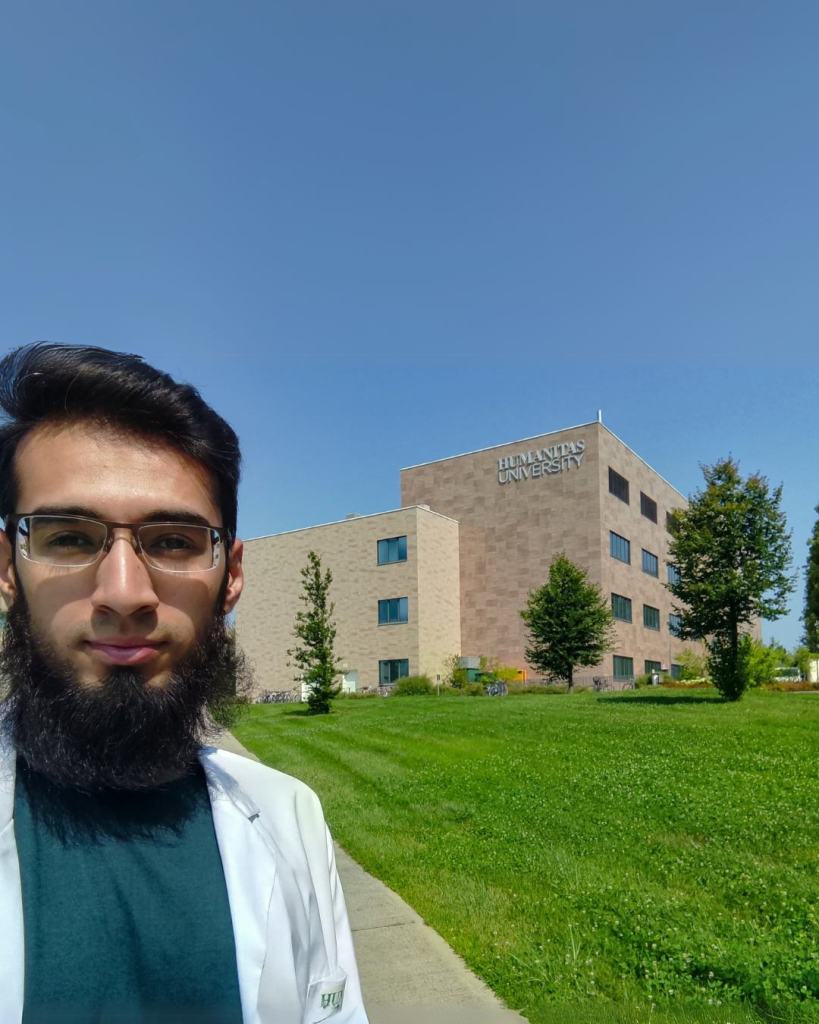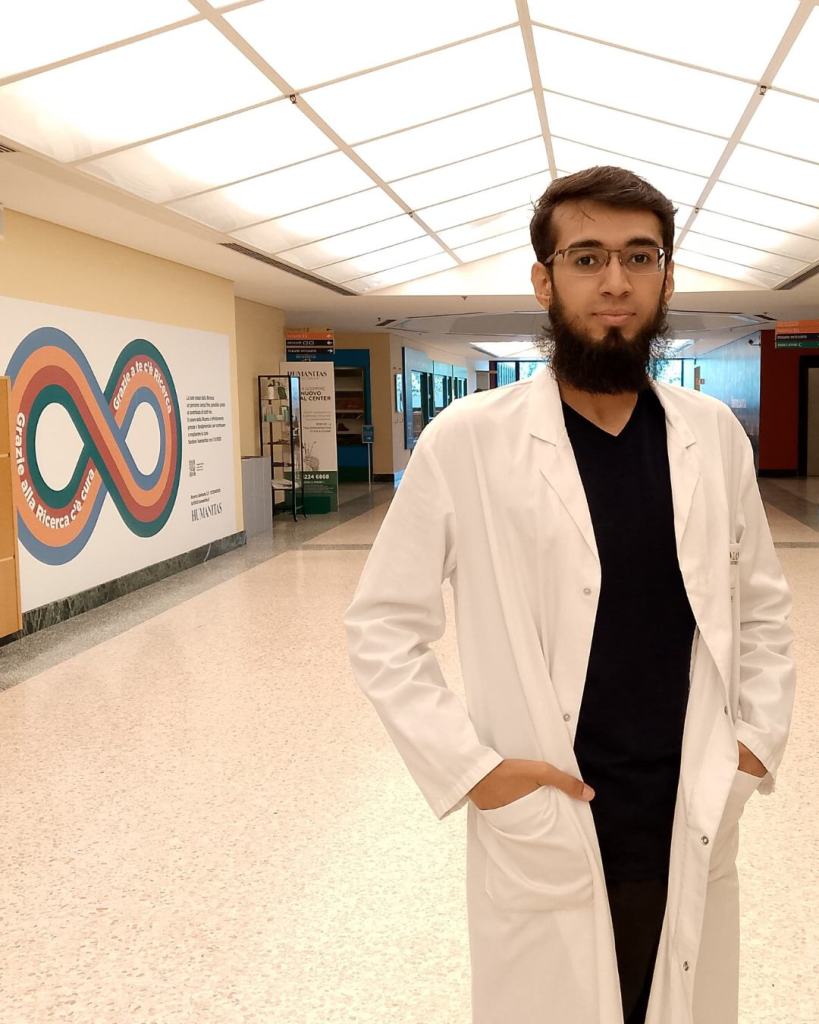From Northwest School of Medicine to Humanitas University: the Testimonies of Laiba and Mustafa
This summer, Humanitas University had the pleasure of welcoming Laiba Fida and Mustafa Qazi, two talented students from the Northwest School of Medicine in Pakistan, for a month-long observership. During their time at Hunimed, they took part in observerships and elective rotations across various departments, both at Humanitas University and at the Humanitas Research Hospital, gaining valuable hands-on experience and insights into advanced medical practices.
Below, they share their personal reflections on the activities and experiences that shaped their time here.
Laiba Fida’s Testimonial
“I’m thrilled to have completed a one-month observership at Humanitas Research Hospital in Milan, where I had the chance to rotate through three diverse departments.
I spent 2 weeks in ICU observing multiple patients with different illnesses, all requiring continuous intensive monitoring and care. This experience provided me with a deeper understanding of medical procedures and the use of electronic equipment in treating ICU patients. Immersing myself in the Italian medical culture was a fantastic opportunity. I was impressed by their electronic medical record system. Furthermore, i got to accompany doctors in their ward rounds, meetings, and discussions on patient care plans. I had the chance to observe many procedures during the course, including tracheostomy, bronchoscopy, bronchoalveolar lavage, endotracheal intubation, and thermodilution.

My experience in the stroke unit was incredibly enriching. Observing her dedication, professionalism and strong work ethic was inspiring. I learnt about the various assessment scales like NIHSS, CRS, ICH, and MoCA scores for stroke and coma patients that are crucial in understanding patient’s conditions comprehensively. Accompanying her during ward rounds and procedures has provided me with valuable insight into patient care and management. I understood that diagnostic processes involving CT scans, MRIs, and the role of rehabilitation in the recovery journey is fundamental in stroke patient care.
My last rotation was in the Internal medicine and hepatology department. In this short amount of time i got to familiarise myself with this clinically complex and challenging field. I shadowed a team of excellent doctors during their patient consultations, observed liver biopsies, and attended medical rounds. The experience not only enhanced my medical knowledge but also deepened my empathy and understanding of the impact of liver diseases on individuals and their families. It was a rewarding and insightful journey that solidified my passion for gastroenterology and hepatology.”
Mustafa Qazi’s Testimonial
“In July 2024, I completed elective rotations at Humanitas University, spending two weeks each in Urology and Neurosurgery. This experience was both academically enriching and personally rewarding.
During my Urology rotation, under the supervision of Drs. Marco Paciotti and Roberto Contieri, I had the opportunity to observe robotic-assisted procedures, including prostatectomies and partial nephrectomies. These advanced techniques demonstrated the significant role of robotics in enhancing surgical precision and patient outcomes, deepening my understanding of modern urological practices. Throughout my rotations, I observed rigorous documentation practices during consultations and procedures, reflecting the high standards of patient care at Humanitas.


In Neurosurgery, under the supervision of Dr. Gabriele Capo, I observed microscope-assisted craniotomies for tumor removal and spinal surgeries, including discectomies and intra-pedicular fixations. I also observed the role of neuro-navigation and neuro-physiological monitoring during neurosurgical procedures. These intricate procedures highlighted the precision required in neurosurgery and provided me with a comprehensive understanding of both cranial and spinal interventions.
A noteworthy experience of my visit was talking with Humanitas students about their med-school, especially the MEDTEC program. The program aims to improve medical abilities by integrating and acquiring competencies related to biomedical engineering. Finding out about this program has given me important new perspectives on how clinical practice and patient care are improved when engineering principles are incorporated into medical education.
The on-campus accommodation was comfortable and conveniently located, providing easy access to the university’s facilities and activities. Overall, my time at Humanitas was immensely valuable. The rotations significantly contributed to my professional growth and the knowledge acquired during this period will undoubtedly impact my future career in medicine.”
